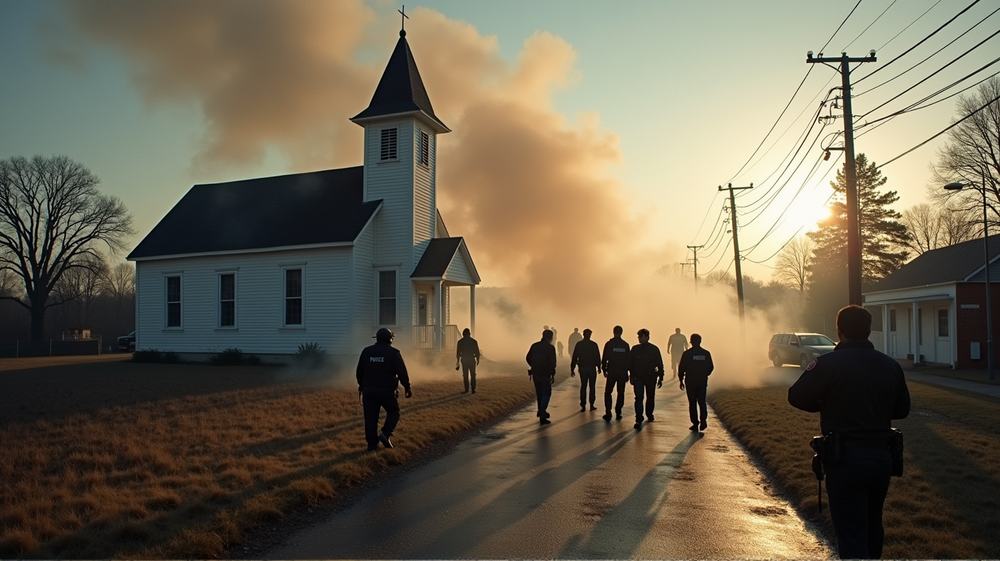Tragic Church Attack Reveals Deep-Rooted Anti-Mormon Sentiments
In a heart-stirring revelation, the FBI has confirmed that the recent attack at a Michigan church was propelled by vicious anti-religious beliefs against The Church of Jesus Christ of Latter-day Saints, known as the Mormon church.
Motives Fuelled by Hatred
The tragic event that unfolded at the Latter-day Saints chapel in Grand Blanc Township left a community reeling. Thomas Jacob Sanford, a 40-year-old ex-Marine, became synonymous with the term ‘hatred’. His disdain for the Mormon church culminated in a horrific act of violence—a moment frozen in the annals of Michigan’s history. According to WSAW, the attack resulted in four deaths and left nine others injured, shattering the peace of the congregation.
A Community in Mourning
The attack wasn’t just a strike against a building; it was an assault on the hearts of believers globally. Lisa Louis, who lost her father, found herself face-to-face with the killer yet astonishingly chose forgiveness—a message that echoes the teachings of her faith. The wider community of Latter-day Saints responded with resilience, channeling their grief into love and solidarity, even raising funds for the gunman’s family—a poignant reminder of the human capacity for empathy.
Fallout and Response
Brandt Malone, a member of the faith and once frequent attendee of the attacked church, voiced a universally shared dread. The confirmation that the attack stemmed from hate left believers across all faiths grappling with the unsettling reality of religiously motivated violence.
Strains of the Past
Sanford’s descent into animosity reportedly began years before, unfolding in Utah—a state intertwined with the Mormon legacy. Personal ties with a member of the faith soured, as did his relationship with sobriety, marking a tragic transformation triggered by a personal downfall. This narrative uncovers a journey of turmoil, addiction, and a haunting vendetta against a religious community.
Seeking Peace Amid Chaos
In the aftermath, the Church of Jesus Christ of Latter-day Saints strengthened security measures—a necessary response to a world fraught with unpredictabilities. Yet, the incident has kindled a resolve to preach love and forgiveness, as exemplified in their recent general conference.
While this attack reveals the shadows that lurk in human hearts, the collective response to drown hate with understanding serves as a beacon of hope. As much as this story pains the soul, it encourages a reflection on the binding power of faith and communal spirit.
The tragic Michigan church attack stands as a stark testament to the dire consequences of unchecked hatred, yet it also shines a light on the innate strength and compassion of the human spirit.




